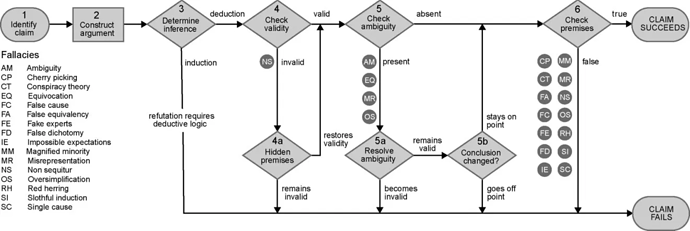Ecco una intervista a Deleuze che da qualche spunto. Lui dice che ogni razionalità si costituisce su assiomi irrazionali. Ne è un esempio il capitalismo ma anche banalmente la chiesa cattolica:
It’s like theology: everything about it is rational if you accept sin, immaculate conception, incarnation. Reason is always a region cut out of the irrational – not sheltered from the irrational at all, but a region traversed by the irrational and defined only by a certain type of relation between irrational factors. Underneath all reason lies delirium, drift. Everything is rational in capitalism, except capital or capitalism itself. The stock market is certainly rational; one can understand it, study it, the capitalists know how to use it, and yet it is completely delirious, it’s mad.
Pare di leggere la biografia di Ayn Rand. Se avesse ragione in ciò, piuttosto di farci imporre dei assiomi assurdi da chissà quale matto che passa e ci dice che la globalizzazione è una forza della natura o che la privatizzazione è più efficace — il nostro metodo di utilizzare scelte intersoggettive sulle quali costruire la razionalità collettiva È PROPRIO GANZO! Permette di limitare l’irrazionalità secondo lui inevitabile della nostra esistenza ad un qualcosa di perlomeno collettivamente concordabile…
Utile anche il suo punto di vista sul concetto di ideologia:
We do not say: ideology is a trompe l’oeil (or a concept that refers to certain illusions) We say: there is no ideology, it is an illusion. That’s why it suits orthodox Marxism and the Communist Party so well. Marxism has put so much emphasis on the theme of ideology to better conceal what was happening in the USSR: a new organization of repressive power.
L’ideologia non serve a un cazzo se non per nascondere il fatto che coloro che la declamano in realtà hanno già tradito il progetto comune, l’onestà di fondo. Con l’ideologia blocchi il dibattito libero, impedisci che il demos arrivi alla conclusione che quello che stai facendo è sbagliato. L’ideologia serve per scusare la nuova dominanza oligarchica, che sia in un partito o nell’unione sovietica non fa differenza. Mi sento confermato in quanto avevo già sospettato in passato. Anzi, mi scordo le cose — avevamo proprio spellato l’etimologia di “ideologia”.
Interessante anche quanto aggiunge Felix Guattari:
It’s the same thing in traditional political structures. One finds the old trick being played everywhere again and again: a big ideological debate in the general assembly and questions of organization reserved for special commissions. These questions appear secondary, determined by political options. While on the contrary, the real problems are those of organization, never specified or rationalized, but projected afterwards in ideological terms. There the real divisions show up: a treatment of desire and power, of investments, of group Oedipus, of group ‘superegos’, of perverse phenomena, etc. And then political oppositions are built up: the individual takes such a position against another one, because in the scheme of organization of power, he has already chosen and hates his adversary.
O cavolo, quanto mi ricorda l’evento di fondazione della Lista Ingroia!


 , comunque la delega liquida serve a questo, quando non sai una cosa la deleghi a chi ne sa più di te. Se ti accorgi che non ne sa abbastanza, sposti la delega su qualcun altro.
, comunque la delega liquida serve a questo, quando non sai una cosa la deleghi a chi ne sa più di te. Se ti accorgi che non ne sa abbastanza, sposti la delega su qualcun altro.
